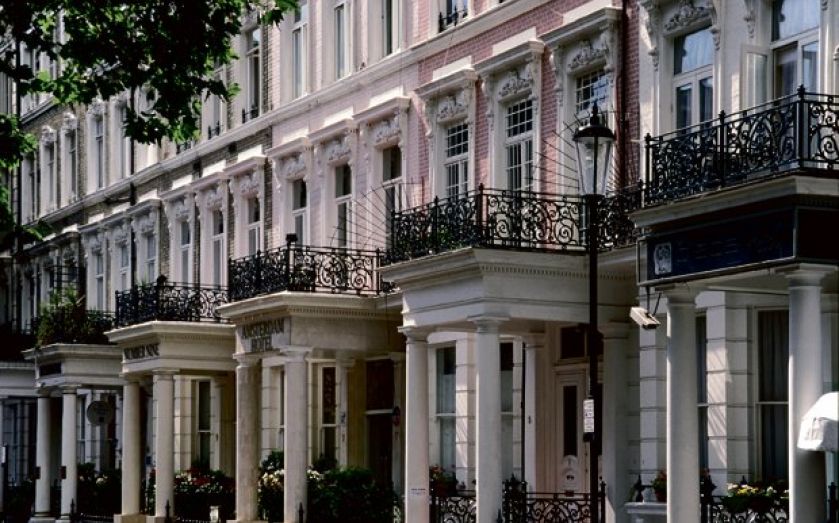Forget a penal mansion tax: It’s archaic council tax that needs desperate reform

WHILE the party conference headlines have focused on Ed Miliband forgetting to mention the deficit, both the Labour leader and David Cameron were also guilty of only referring to “investment” twice in their conference addresses. When that happens, you know political minds are on next May’s general election, rather than on what is best for the country in the long term.
One issue which is increasingly proving a triumph of political expediency over common sense is the mansion tax, and how revenue from this proposed levy on properties valued at over £2m would be raised and spent. Over the last couple of weeks, we have seen both Labour and the Liberal Democrats change their plans on this penal tax.
In what appeared to be a move to keep its own support on side, Labour reached for its traditional succour, extra spending on the NHS, and using the proceeds of a mansion tax to fund it. There are myriad reasons why this would not work. Would this involve hypothecation, whereby the proceeds from a mansion tax are directly funnelled into the healthcare system? Would the tax actually raise the £1.7bn proposed? Would this sum even make a difference to the NHS? On top of this, a recent report from Savills has estimated that up to £1bn of the revenue raised through a mansion tax could be cancelled out through loss of taxation in other areas.
The Lib Dems’ policy fares slightly better. The party at least seems to be more alert to the practical challenges that a mansion tax, as a fixed percentage levy, would pose. Instead, they now favour introducing higher council tax bands, which is a step in the right direction.
In reality, however, this would only be a stop gap. If the Lib Dems want to put the country first, they should be the first to commit to a full revaluation of council tax.
We haven’t had a council tax revaluation since 1993. If this is meant to be a property tax, you cannot base it on property values that existed when John Major was Prime Minister and the Bluebells were top of the charts.
As things stand, current council tax values often bear no relation to the current value of the properties concerned. The system allows for the residents of an £80m mansion on Cornwall Terrace in Westminster to pay £400 less council tax a year than those living in a two-storey cottage on Cornwall Terrace in Penzance.
From our soundings of Labour politicians and our own industry, there is a recognition that council tax at the high end of property values is very low compared with other world cities. If you added a few bands, coupled that with a revaluation of council tax across the country, and then spent the proceeds on affordable housing, you would be getting close to a policy that most backbenchers would agree is good for the UK. It would be fair in terms of taxation, and it would be sensible to invest the money in something that will generate growth and jobs today, and deliver housing for tomorrow.
A revaluation was meant to take place in 2007, but was postponed in 2005. All parties fear that a revaluation will drive voters away, but the electorate is perhaps a little more mature than they are given credit for. In any case, a revaluation will not be as impactful as perhaps our politicians presume.
Currently, more than half the homes that would be afflicted by a mansion tax can be found in just five London boroughs. Indeed, Rightmove discovered that three quarters of the properties listed on its website that would be eligible for the mansion tax are found in the capital, and one in six are in the South East. A mansion tax would unequivocally be a tax on London.
Research from the Joseph Rowntree Foundation, however, based on a hypothetical revaluation of council tax, showed that 70 per cent of households would see a negligible change to their bills. London, despite its enormous growth in house prices, would see about half its residents’ bills remain broadly the same. A quarter of Londoners would see their bill rise by £25 to £50 a year, with a mere 4 per cent seeing an increase in their bills of over 50 per cent. In the rest of the country, 17.3 per cent would be net gainers in the North compared to 22.9 per cent being net losers in the South.
If we are to remain a competitive country in a challenging world, we need politicians that will make tough decisions. A mansion tax is an ill-thought-through policy that would only send out the wrong message to those who consider the UK to be a good and fair place to invest. Dressing up the policy in an NHS smock will not resolve this.
